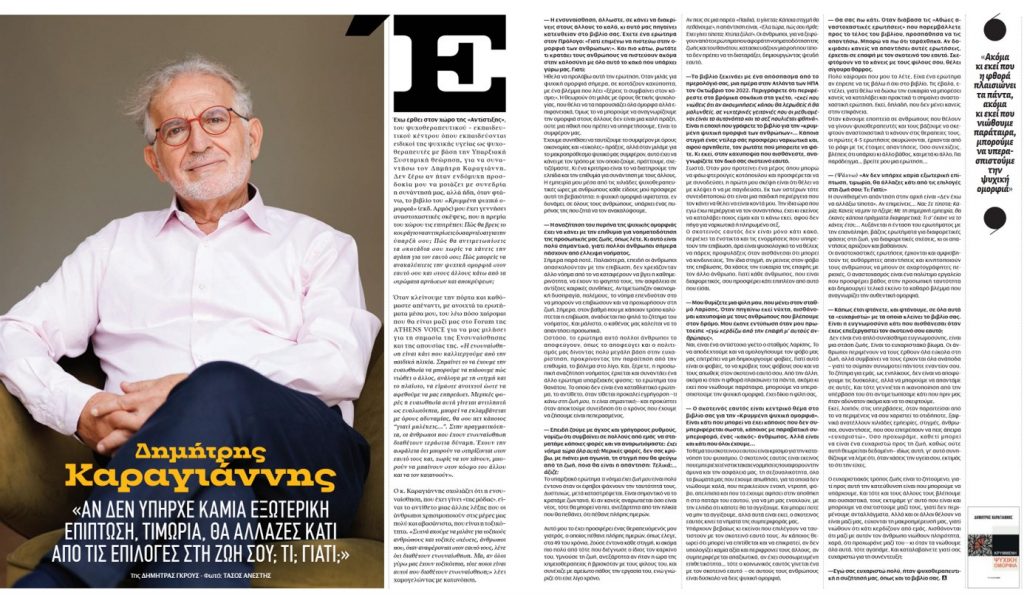If there were no external consequences, no punishment, would you change any of the choices in your life?
Dimitris Karagiannis, Psychiatrist - Psychotherapist, speaks to Dimitra Grouse and Athens Voice on the occasion of his new book “Hidden Psychic Beauty” (published by Armos).
I have come to the space of "Antistixis", the psychotherapeutic-educational center where mental health specialists are trained as psychotherapists based on the Existential Systemic perspective, to meet the Dimitris KaragiannisI don't know if it was my inner expectation that our meeting would be like a session, but already, when I arrive, his book "Hidden Spiritual Beauty" (published by Armos) It has given rise to reflective thoughts in me, which the tranquility of the space allows: How will you find the courage to confront what you deny about your existence? How will you face your darkness without losing love for yourself? How can you discover the spiritual beauty beneath the layers of denial and concealment?
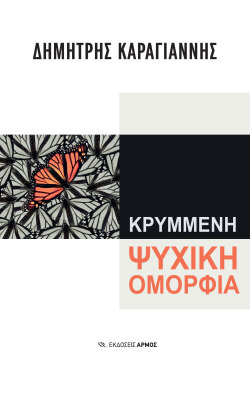
When we close the door and sit across from him, with questions open in my mind, I tell him how happy I am that he will be with us at the Athens Voice Forum to talk to us about the importance of Empathy and its absence. “Empathy is something we cultivate since childhood. It means having the sensitivity to be able to grasp how the other person feels, depending on the moment and the context, to be open to letting ourselves be influenced by it. Sometimes this sensitivity is perceived as vulnerability, it can be perceived in terms of weakness, someone will tell you “why are you getting involved…”. In reality, people who have empathy have enormous strength. They have the security that they can rely on themselves and, without losing it, they can enter the other person’s world and understand it.”
THE Dimitris Karagiannis and the concept of empathy and spiritual beauty
THE Dimitris Karagiannis comments that empathy, which has become “in vogue,” is the opposite of another word that people use a lot and carelessly these days, which is toxicity. “We often hear people talk about toxic people and toxic relationships, people who, when referring to themselves, say they have empathy. But if everyone around us is toxic, then who are the ones who have empathy?” he says, smiling with understanding.
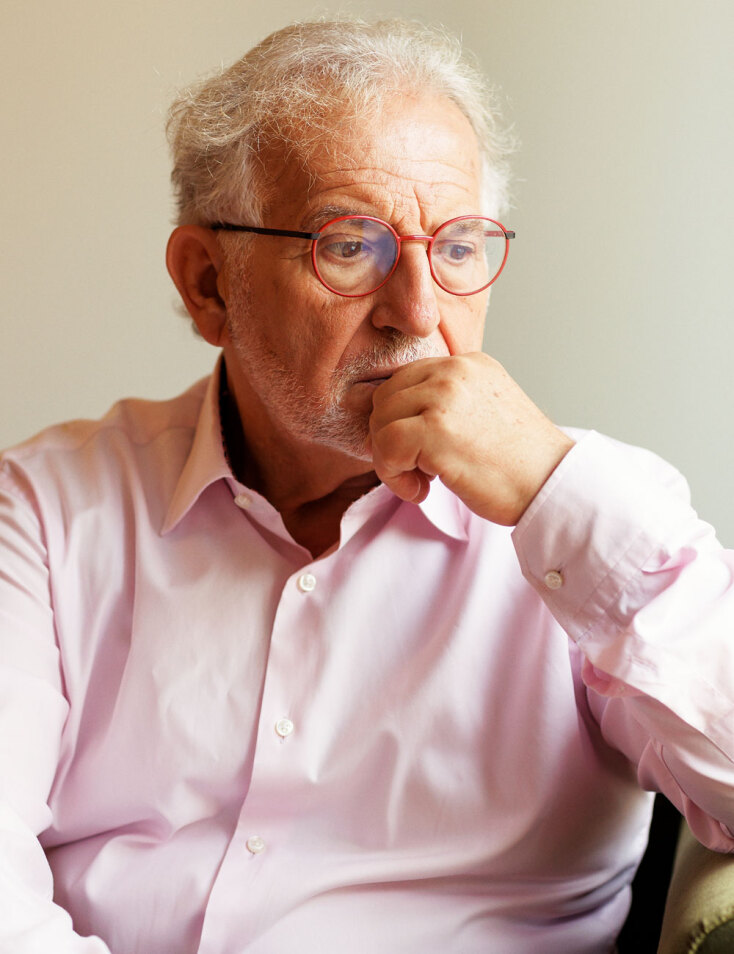
— Empathy, after all, makes you see the good in others, and this leads us directly to your book. You have a question in the Preface: “Why do I insist on believing in the beauty of people?” And further on, you ask what keeps people still believing in goodness with all the evil around us. Why?
I wanted to preempt the question. When you talk about spiritual beauty today, they look at you suspiciously, with a look that says "do you know what's going on in the world?" Or they think you're talking in terms of positive psychology, which wants to present everything as beautiful but superficial. But being able to recognize beauty in others is not a good deed, nor an ethic that we must serve. It is in our own best interest.
We are used to identifying self-interest with terms of economy and “easy” actions, but when we talk about our long-term spiritual self-interest, it has to do with the way we live, act, and relate. And one criterion is to maintain hope and the desire to meet others. My experience through thousands of psychotherapeutic hours with people of all kinds has given me this certainty: spiritual beauty exists, potentially, in all people, there is a core of it that asks to be discovered.
— The search for the core of spiritual beauty has to do with the desire for meaning in our personal lives, as you say. And this is very important, because many people today suffer from a lack of meaning.
© Tasos Anestis
Today more than ever. In the past, because people were concerned with survival, they did not need any other meaning than to manage to get through everyday life, to have their food, to be safe in adverse weather conditions. They faced economic hardship, wars, the meaning was invested in being able to survive and move forward in life. Today, to the extent that survival is somehow covered, the question of meaning emerges higher. And indeed, each of us is called upon to answer it personally.
However, many people avoid this question, just as our culture avoids it by giving too much importance to pleasure, preferring the renunciation of
desire, the desire for little. And, you know, the personal search for meaning comes and meets another question of an existential nature: the question of death. Which is not a depressing question, on the contrary, when it is asked it causes alertness – what am I doing with my life, what is important? – and it arises when we become aware that the time we have to live is finite.
— Because we live with stress and a fast pace, I think it happens to many of us that we sometimes stop and ask ourselves: does all this make sense now? Sometimes, I won't hide it from you, I get a sense of anxiety, the moment I leave life, what will be the answer: In the end?... was it worth it?
The existential question of what is the meaning of my life is very intense when teenagers are searching for their identity. Unfortunately, it is then destroyed. It is important to keep it alive. And if someone asks themselves this question while they are young, then they will be able to say, regardless of the age they die, that they died full of days.
This was offered to me by a doctor I treated, who died full of days, as he said, at the age of 49. He lived intensely every moment, and even more so since he himself diagnosed his cancer. He celebrated life, regardless of whether it was time for chemotherapy or when he was with his friends, and he continued his work with undiminished passion, even though he knew that he had little time.
But if you say to a group of people, "Guys, what's up? We're going to die at some point," the response is, "Come on, how did you get here? Has something happened? Knock yourself out!" People, in order to escape the question of the meaning of life and death, construct a flow that nothing should disturb, creating a false self.
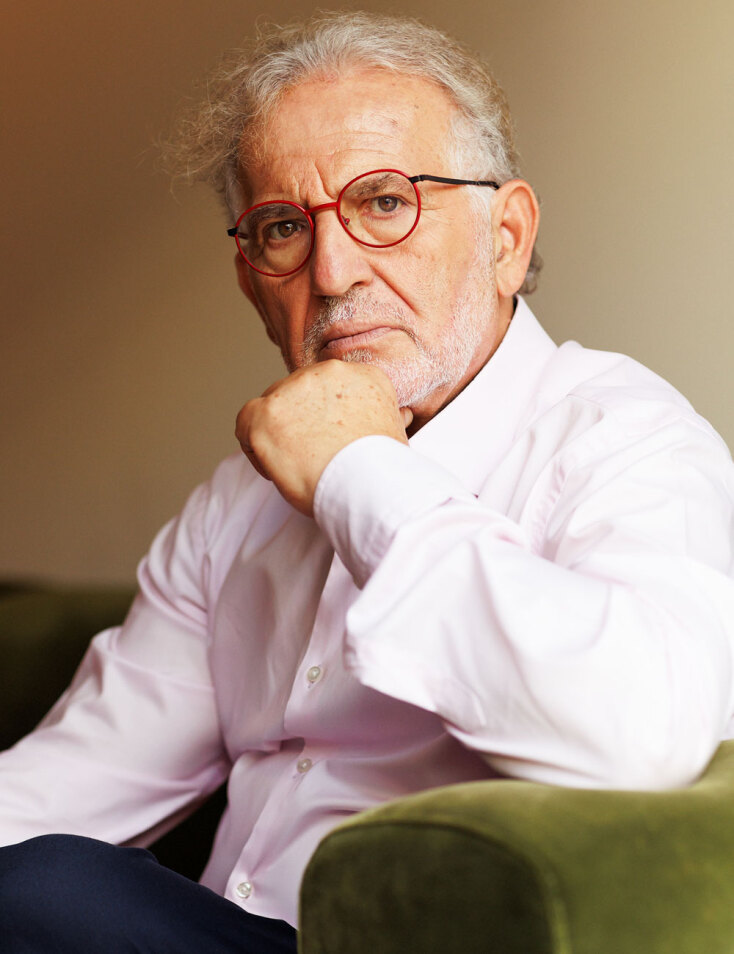
People, in order to escape the question of the meaning of life and death, construct a flow that nothing should disturb.
— The book begins with an excerpt from your diary, a day in Atlanta, USA, in October 2022. You describe wandering the dirty alleys of the ghettos, “where you feel that if you touch something you will get dirty or contaminated, in night neighborhoods where drunks are a given and sex is sold cheaply”. It is the time when you write the book about the “hidden mental beauty of people”… At one point a dealer offers you drugs and, after you refuse, you ask him where you can eat. And there, in the suspicion you feel, you recognize your own dark self.
That's right. When he suggests a place where I can eat chicken wings and offers to accompany me, my first thought is that he wants to steal or trap me. In hindsight, I realize that it's a childish curiosity that makes him want to be near me. At the same time that I'm curious to meet him, he also has to figure out who I am and what I'm doing there, since I didn't go for drugs or paid sex.
The dark self is not only something bad, it contains the instincts and drives that serve survival, so it is normal to want to take precautions when you feel that you may be in danger. At the same time, if you stay in the fear of survival, you will miss the opportunity to connect with the other person. Because every person, who is different, offers you something extra than who you are.
© Tasos Anestis
— You remind me of a friend of mine who lives at Larissa station. When I go there at night, I feel suspicious of the people we see on the street. I was impressed when she first told me, "I gain from contact with these people."
Yes, Larissa station is a similar ghetto. Accepting and confessing our fear allows us not to create phobias. Because that is what phobias are, hiding your fears and pushing them away into your dark self. On the other hand, even when decay surrounds everything, even where we feel out of place, we can defend our spiritual beauty, your friend is right.
— The dark self is a central theme in your book on “Hidden Psychic Beauty.” It’s something that someone who doesn’t behave properly, someone with delinquent behavior, a “bad” person can have. But it’s also something that we all have…
The subject of the dark self is crucial to understanding the psyche. The dark self is the one that contains instincts and drives that concern our defense and security, sexuality, all our experiences that we have repressed, that we do not feel good about, that include guilt, shame, fear, despair and that we have left in the storeroom or attic of the self, so that they do not bother us, in the hope that one day we will touch them. And we may never touch them, but they are there, the dark self pulls the strings of our behavior.
There are of course those who choose to identify with their dark self. If someone believes they can attack and dominate, if they don't value and despise others, if they behave in a derogatory manner, if they have accumulated aggression... then the social self becomes one with the dark self - in these people it is difficult to see
mental beauty.
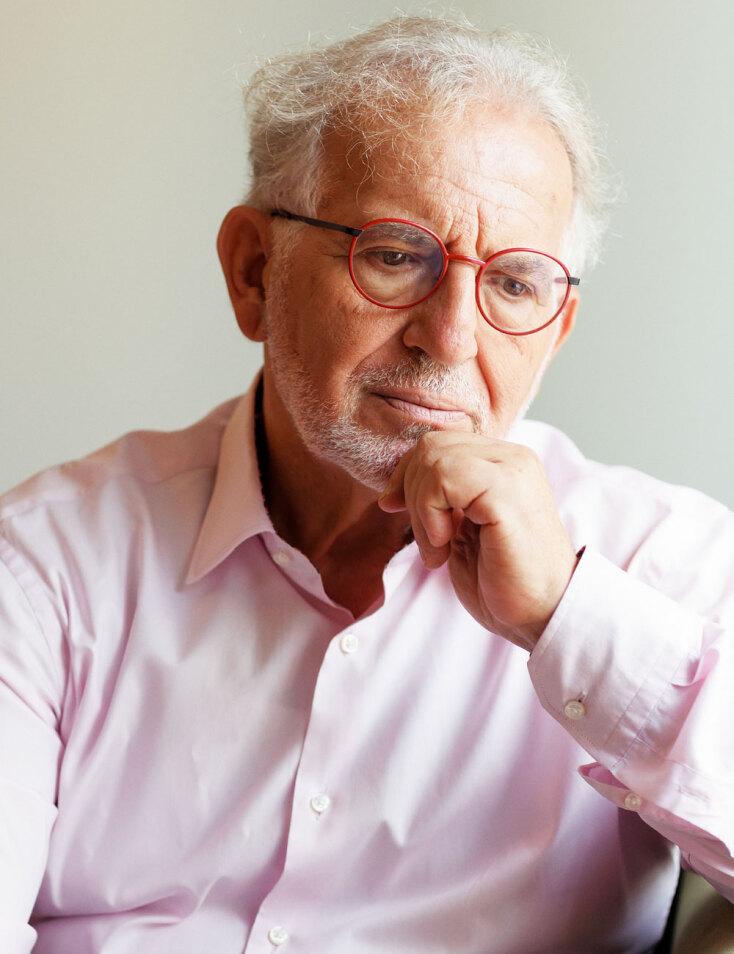
The dark self contains all the experiences we have repressed, that we do not feel good about, which include guilt, shame, fear, despair.
— Isn't that what most of us struggle with? If we struggle...
In our time, too many people identify with their superficial self and refuse to see anything negative within themselves. And that is where narcissistic personalities are created. They ask others to mirror how perfect they are, seeking to serve them because they had traumas in their childhood. When the social self consciously refuses to face the painful elements of the dark self and process them, then it degenerates into a false self. And while outwardly it appears to be balanced, it suffers from neurotic or personality disorders and trembles at every revelation.
© Tasos Anestis
— Do other people help us confront our dark selves?
It is very important to have someone else in our life who will mirror it for us. Having someone who can
recognizes it but is not afraid of it, does not identify us with it, whose gaze can penetrate us and tell us “you are not only your failures, your fears, your inadequacies, you are not only your instincts, your narcissistic elements – you have them too, but you are not only that.” Passing through the dark self requires a steady hand to hold you or a tender gaze to surround you.
This can be a psychotherapist – although many psychotherapists today move along the line that the client is always right, therefore they create false selves –, it can be the companions, who can see each other in difficult times but stay there because they see the core of each other's spiritual beauty. And the good friends, the timeless ones. The ones you may be close to, or a long time has passed since you have seen them, but they are there, and when you meet them you can leave the conversation where you left it.
— When we grow up, we consciously choose people based on their spiritual beauty. Adult friendships, I believe, give a lot of meaning to our lives.
What you say is very nice. Sometimes with old friends, who are not progressing as well as we are, it is natural for there to be a divergence, because we have become different. We then put them on the register of relatives, we love them but we cannot have contact with them. The more we demand more from ourselves, the more we demand from others. Today there is a great need for adult friendships, for there to be a connection and a desire to chat about something more substantial. When people start talking only about health issues and practical issues, such as when we will retire, then they are talking about non-life. There is enormous existential loneliness out there, and the more superficial relationships people have, the more loneliness increases. The issue of friendship at older ages is either covered up, if you relate to false selves – which cannot satisfy you –, or you will connect with painful but processed dark selves.
So, we come back to that again: the dark self that you have processed, that you have processed the mistakes, the failures, the difficulties, the inadequacies, is very important for being able to have authentic relationships. And authentic is not an ideal self, but one that is aware of its inadequacies and emotions and utilizes them for the benefit of its evolution. In other words, the person who gets angry should not eliminate his anger, it is good to get angry about the right issues without dramatizing it and then be able to process it.
— I'll tell you something. When I read the "Innocent Reflective Questions" that you insert towards the end of the book, I tried to answer them. I can say that I was disturbed. If one tries to answer these questions, one comes into contact with one's dark self. I was thinking of doing it with your friends, he wants definitely courage.
I'm very happy. Because I had a question, whether I should put them in the book or not. I put them, ultimately, because I want to give the opportunity for someone to understand in practice what reflective questioning means. That is, where one does not stay on the surface.
When we supervise people who want to become psychotherapists and have them think reflectively about what they do in their therapies, the first 4-5 questions are canceled, they come from the shelf with ready-made answers. As you continue, you see that there is more depth, and then more. For example… find me a question…
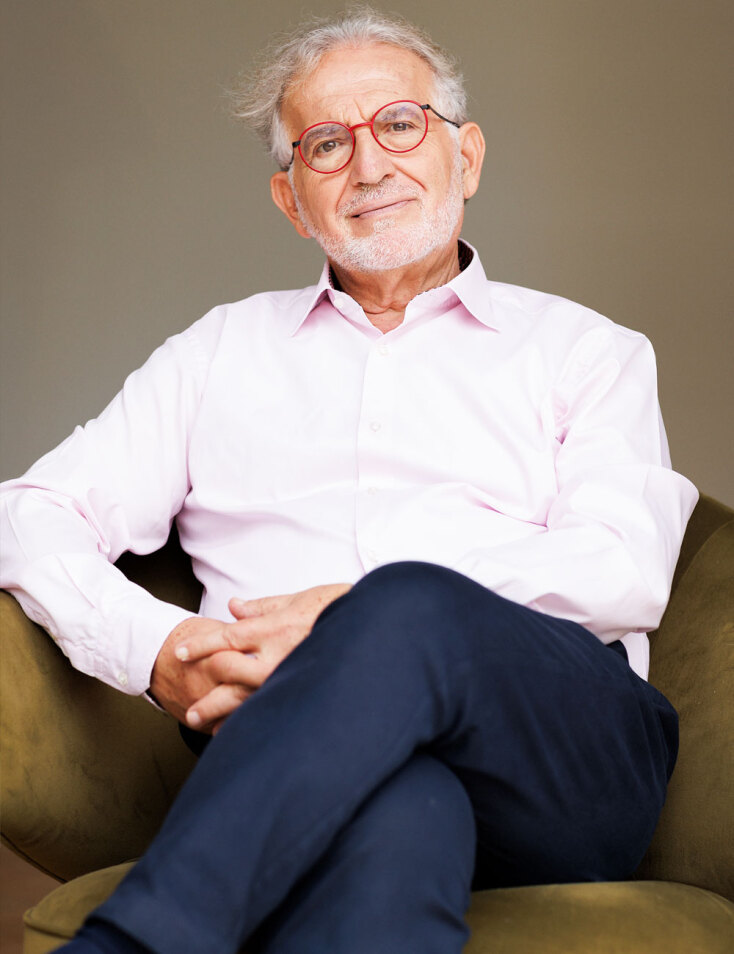
— (I am looking) "If there were no external consequences, no punishment, would you change any of the choices in your life? What? Why?"
The usual answer at first is "I have nothing to change." If you insist... Yes? Nothing? None? No one would know? With today's experience, would you do some things differently? What made you do it that way?... The intensity of the question increases with repetition, you ask questions about different phases in life, about different relationships, and the answers begin to deepen.
Reflective questions challenge spontaneous answers and motivate people to enter uncharted territories. Reflection is a valuable tool that provides depth to personal identity and ultimately creates that clear gaze that recognizes authentic beauty.
When you give up expecting anything to be given to you, suddenly thousands of experiences, moments, people arise, allowing you to say infinitely "Thanks".
— That's how you arrive, and we arrive, at all those "thank yous" with which your book ends. Is gratitude something you feel when you've processed your dark self?
It is not a simple feeling of gratitude, it is an attitude towards life. It is the eucharistic experience. People expect everything to come easily to them in life, but it happens that everything comes to them upside down – because the universe is always conspiring against you. The issue for us, as adults, is not to avoid difficulties, but to be able to respond to them.
© Tasos Anestis
And then comes the satisfaction of overcoming something that was previously impossible for us to even think about.
So, there, in the transcendences, when you give up expecting anything to be given to you, suddenly thousands of experiences, moments, people, encounters arise, allowing you to say an infinite "thank you." As we move forward, everything can be a thank you to life, as life itself is not taken for granted either - especially this one, which is why we often say that when you lose your health, you appreciate having had it.
The eucharistic way of life is the goal, because it is in this direction that we can exist. And then we see others more essentially, we appreciate them for what they are and we can relate to them, because we do not expect anything in return. But others also want to be with us, they wish us long life, because they feel that they gain something from us. They feel that with this person they feel completeness, joy, that they are moving forward with him – and when we feel all this, then we love. And do you understand why I thank you for the interview?
— Thank you very much, our conversation was psychotherapeutic, as was your book.

